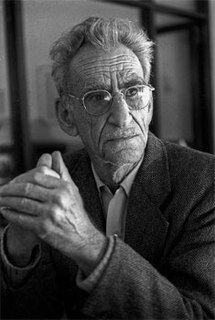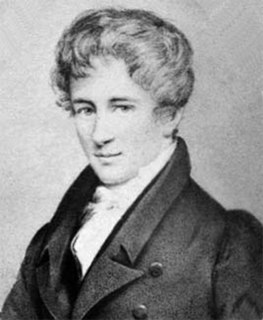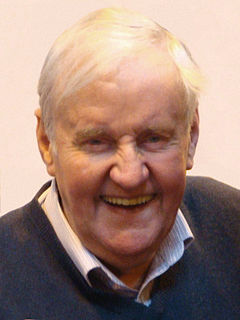A Quote by George Oppen
A discrete series is a series of terms each of which is empirically derived, each one of which is empirically true. And this is the reason for the fragmentary character of those poems.
Related Quotes
Notable enough, however, are the controversies over the series 1 - 1 + 1 - 1 + 1 - ... whose sum was given by Leibniz as 1/2, although others disagree. ... Understanding of this question is to be sought in the word "sum"; this idea, if thus conceived - namely, the sum of a series is said to be that quantity to which it is brought closer as more terms of the series are taken - has relevance only for convergent series, and we should in general give up the idea of sum for divergent series.
There's a tremendous popular fallacy which holds that significant research can be carried out by trying things. Actually it is easy to show that in general no significant problem can be solved empirically, except for accidents so rare as to be statistically unimportant. One of my jests is to say that we work empirically -- we use bull's eye empiricism. We try everything, but we try the right thing first!
I first heard the term "meta-novel" at a writer's conference in Tulsa, Oklahoma. The idea is that even though each book in a series stands alone, when read collectively they form one big ongoing novel about the main character. Each book represents its own arc: in book one of the series we meet the character and establish a meta-goal that will carry him through further books, in book two that meta-goal is tested, in book three - you get the picture.
The same tantalizing guile and sublime skill....[The series is] reinforced in its claim to be one of the major literary works of this century....Only two other writers that this reviewer can think of have each created an entire, discrete and compelling world, a totally believable entity which one might wish to inhabit, and they are Joyce and Proust. It is not pretentious to place Patrick O'Brian in the first canon of literature.
As a result of changes which, over the last century, have modified our empirically based pictures of the world and hence the moral value of many of its elements, the "human religious ideal" inclines to stress certain tendencies and to express itself in terms which seem, at first sight, no longer to coincide with the "christian religious ideal".
Until now the theory of infinite series in general has been very badly grounded. One applies all the operations to infinite series as if they were finite; but is that permissible? I think not. Where is it demonstrated that one obtains the differential of an infinite series by taking the differential of each term? Nothing is easier than to give instances where this is not so.
Today I said to the calculus students, "I know, you're looking at this series and you don't see what I'm warning you about. You look and it and you think, 'I trust this series. I would take candy from this series. I would get in a car with this series.' But I'm going to warn you, this series is out to get you. Always remember: The harmonic series diverges. Never forget it."





































